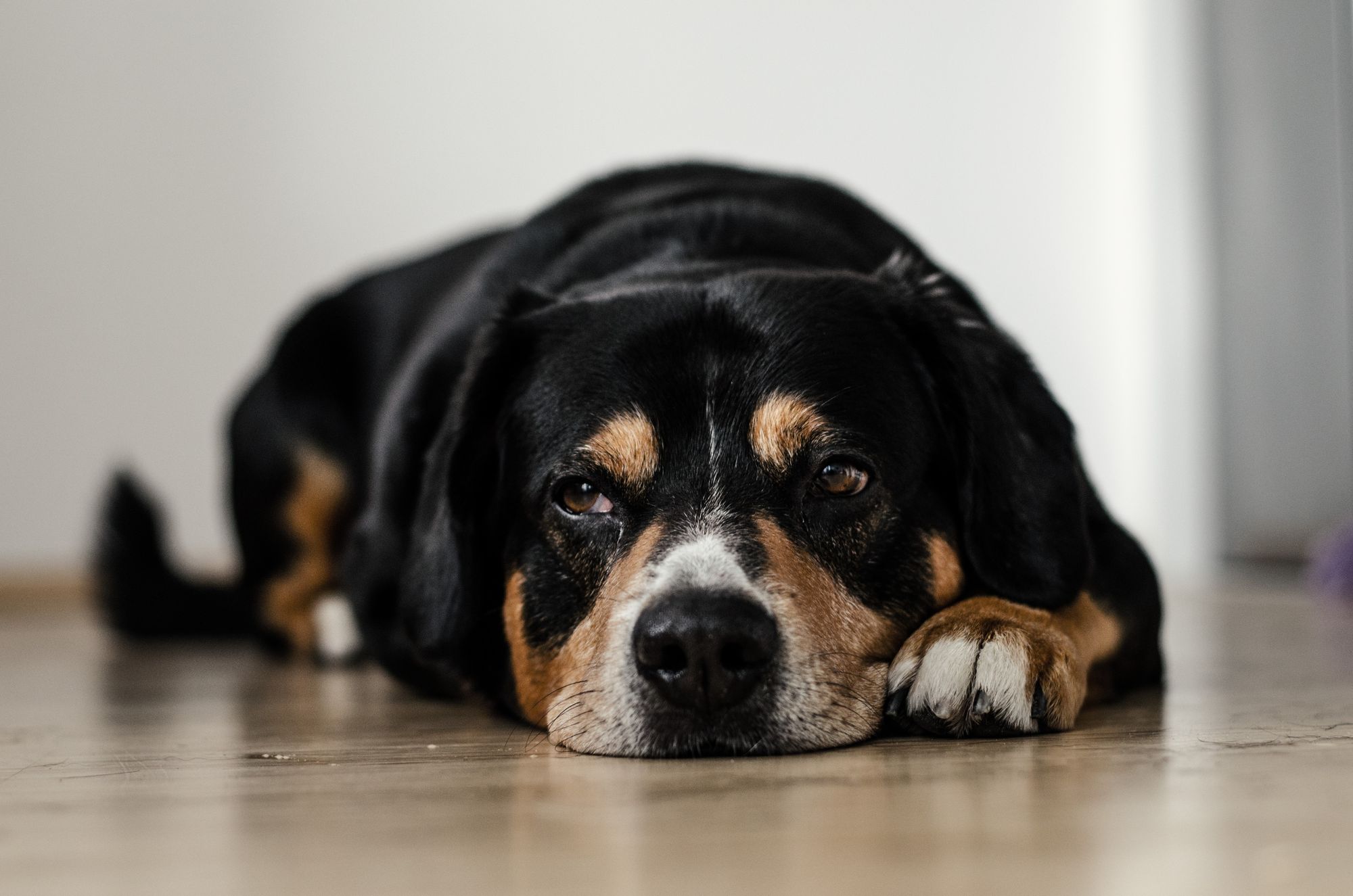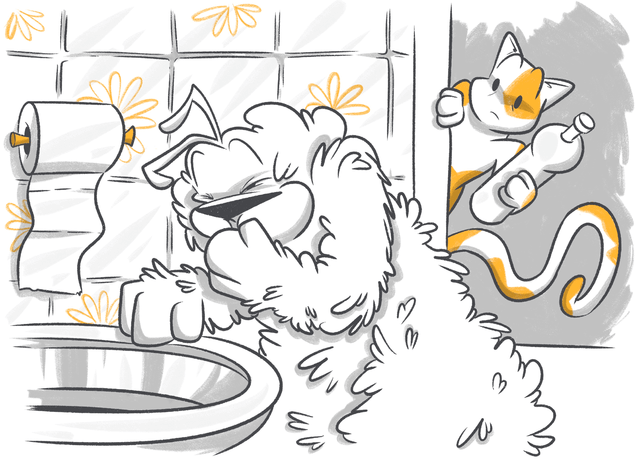It’s common for dogs to drink a lot more water during hot weather, but it can create unwanted side effects, especially if there is a not-yet-diagnosed medical condition lingering. Drinking lots of water too quickly can cause your pooch to regurgitate or throw up water, but that’s not the only concern.
Let’s take a closer look.
Stop Googling - Ask a Real Vet
Content:
- The 5 Causes of Dog Vomiting After Drinking Water
- When Should You Worry About Your Dog Throwing Up After Drinking
- What to Do if Your Dog is Throwing Up After Drinking Water
- How Can the Emergency Fund Help with Treatment
- FAQs
- Conclusion
The 5 Causes of Dog Vomiting After Drinking Water
It is not normal for a dog to regurgitate or vomit water, but it isn’t always a symptom of something life-threatening. What was your pet doing before they vomited or regurgitated? Do you have a Pet Camera in your home? You could always look back over the footage to ensure you’ve not missed anything and collect all symptoms to present to your vet.
1: Drinking Too Quickly
Have you ever woken up with a really dry mouth after an afternoon nap and guzzled down a glass of water in less than ten seconds? Dogs can feel the need to drink water that fast and ferociously, too. If they’ve been out in the yard, running around, on a super-hot day, it’s hardly any wonder they’re in the mood to rehydrate. When they drink too quickly, however, the digestive system can’t quite cope. As a result, regurgitation occurs.
Excessive thirst is a symptom of medical conditions such as cystitis, and problems with the kidney, or liver disease.
2: Contaminated or Polluted Water
If your pup has a bout of diarrhea with vomiting or regurgitation, perhaps there is, literally, something in the water… and something not good.
Bacteria, viruses, and several other parasites and bugs can live in water. When your pet drinks contaminated water, those bugs then enter the body. Pseudomonas, giardiasis, leptospirosis, schistosomiasis, green or blue algae, pythiosis, and cryptosporidiosis are just a few that could afflict your pet in the USA.
Always ensure your pet has clean, fresh water. It should be changed at least once per day and topped up throughout the day if necessary.
3: Laryngeal Paralysis
Laryngeal paralysis in dogs means, quite literally, paralysis of the larynx, which is responsible for opening and closing the windpipe (trachea) along with vocal sounds. It can cause food and water to go down into the windpipe, causing pets to choke and/or regurgitate.
The condition is quite common in dogs, particularly those of middle age and older. Larger dogs are also at higher risk of developing it.
You will likely see the following symptoms if your dog is suffering from laryngeal paralysis, according to Cornell University College of Veterinary Medicine research:
- Coughing or choking;
- Vomiting or regurgitating food or water;
- Heaving;
- Changes to breathing sounds;
- Difficulty breathing;
- No interest in exercise, play, or toys;
- Low or no appetite;
- Increased attempts to drink water;
- Changes to the tongue or gum color;
- Fainting/collapsing.
4: Food Allergies or Sensitivities

If your pup has any kind of sensitivity or allergy to certain foods or other substances, gagging, regurgitating, and vomiting can occur when they are exposed to the allergen. Feeding a pup lamb-based foods when they have a lamb sensitivity will cause vomiting or heaving of food and water —whatever they have previously ingested.
Your vet can perform diagnostic tests to pinpoint the exact sensitivities or allergies.
5: Gastrointestinal Blockages
If something blocks the gastrointestinal system, nothing can get through. Foreign bodies, water, and food come back up because they can’t go back down, so your pup may regurgitate or vomit food and water rather than just water alone.
Even minor blockages can become big problems without the right treatment, and they rarely go away on their own.
6: Others
Other potential causes of regurgitating or vomiting water after drinking include:
- Benign tumors;
- Megaesophagus;
- Cancer;
- Hernias;
- Hypothyroidism;
- Addison’s Disease;
- Spirocerca lupi worms (esophageal worms).
When Should You Worry About Your Dog Throwing Up After Drinking
It’s always a little worrying when your pup throws up, gags, regurgitates, or otherwise has problems with food and water. Without taking a trip to the vet, you simply won’t know what’s causing the symptoms, so it could just as easily be something benign, such as drinking too much water too quickly, as it can be something life-threatening, like blockages of the gastrointestinal system.
Certain breeds are at a higher risk of developing conditions that lead to vomiting or regurgitation, such as flat-faced (brachycephalic) breeds, mixed-breed pooches, Shar Peis, German Shepherds, Miniature Schnauzers, and Wirehaired Fox Terriers.
What to Do if Your Dog is Throwing Up After Drinking Water
If you have access to Petcube’s 24/7 vets with the Emergency Fund, I highly recommend having a chat with them. If not, make an appointment with your local vet. They will perform a physical examination and various diagnostic tests to determine the root cause, which can then be treated appropriately.
There are a few things you can do at home, but these are medical condition-dependent. Smaller and more frequent food and water servings, different food products, and raised food and water bowls are useful in some cases, such as too-fast eating and drinking, but not in situations that require medical attention, such as blockages or when surgery is necessary.
How Can the Emergency Fund Help with Treatment
You can think of Petcube’s Emergency Fund Service as an ally, helping to pick up the hefty cost of emergency pet treatment when you would otherwise struggle to pay for it. For just $29 per month, with no deductibles or added extras, you’ll have access to $3,000 of care coverage for scary pup emergencies, such as vomiting and choking, breathing difficulties, and more.
FAQs

Vomiting or regurgitation: which one does my dog have?
Vomiting and regurgitation are two different things caused by slightly different medical conditions. Regurgitation occurs before food, water, or other ingested items have reached beyond the esophagus. Regurgitated material usually looks like whole or partially chewed food items. Vomiting, on the other hand, has passed through the esophagus and reached the small intestines, or stomach.
Why is my old dog not eating but drinking water and vomiting?
These symptoms point in the direction of a medical condition that requires veterinary treatment, such as a gastrointestinal blockage. This is especially true if symptoms persist for more than 24 to 48 hours. X-rays, blood tests, physical examinations, and other diagnostic tests will determine the underlying cause.
Conclusion
Gagging, retching, vomiting, and regurgitation are not pleasant medical conditions, which you likely know if you’ve ever been sick yourself. Minor stomach bugs and other gastrointestinal conditions usually go away in a day or so, so if symptoms persist for longer than that, it’s time to make that call to the vet. The sooner you do, the sooner things will get back to normal.
Was this article helpful?
Help us make our articles even better









